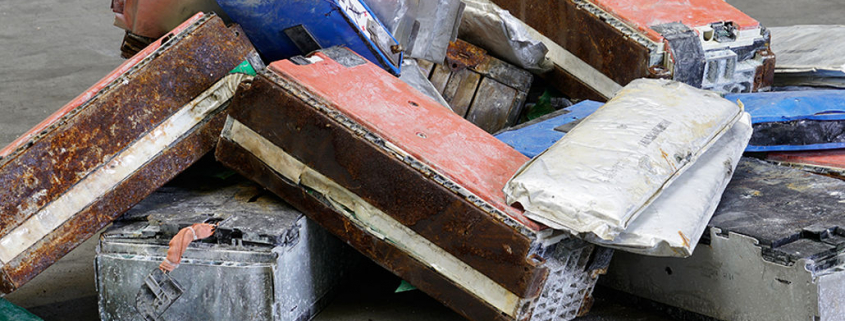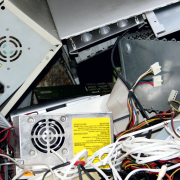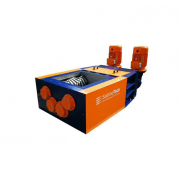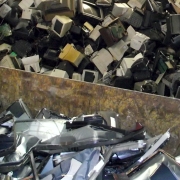Innovative Recycling Solutions from URT Umwelt- und Recyclingtechnik GmbH
For more than 10 years, the German plant manufacturer URT Umwelt- und Recyclingtechnik GmbH has been working successfully in the field of lithium-ion battery recycling. Due to many years of experience in the fields of inert shredding, airlock technology, plant sealing and efficient separation technology, the URT plants meet the latest European emission regulations as well as the highest recovery rates.
The German-based company has been focusing on electrical and electronic scrap (WEEE) recycling for over 25 years. In 2011, the company started to develop recycling solutions for battery recycling. At that time, URT was already part of the LithoRec-2 project when it designed and built the first prototype. Participating from the beginning, the company’s first industrial plant is in operation since 2020. Currently, URT is building several plants in Europe and the USA. The next plant will be commissioned in Poland for Elemental Strategic Metals Sp. Z o.o.
The URT concept and its core elements
The URT recycling concept covers the core elements of resource recovery and pollutant removal in equal measure. The focus is on the one hand on the recovery of the black mass with a high degree of purity and on the other hand on the evaporation and separation of the electrolytes. The previously deep-discharged batteries are fed into a single-stage shredding process via a sluice system. Subsequently, the shredded total fraction enters a vacuum dryer, which evaporates the electrolytes, which are then condensed again and filled in liquid form. This process section, from shredding to dryer discharge, is encapsulated and kept inert by a nitrogen atmosphere.
The dry active material (black mass) is separated from the remaining components by sieving and filled. In order to meet recycling targets, the active mass must be almost completely separated. Ferrous metals are separated from non-ferrous metals by magnetic separation processes. Anode and cathode foils are further components of the batteries that are separated in the plant. The delamination is done by impact grinding of the foils to enable further separation of the metals coating, plastic foils and remaining active material. In addition to the maximum working conditions the plant will fulfil national and European emission standards. This is ensured by a multi-stage exhaust air treatment system consisting of gas scrubbing and exhaust air post-combustion. The URT lithium-ion battery recycling plant enables a recovery of more than 98 % of the black mass. Due to the one-step, slow-rotating shredding process before drying, less fines from the other fractions are carried over into the black mass. This produces a black mass of the highest purity.
Battery recycling remains strong in the future
Thanks to the proven concept, the plant manufacturer succeeds in closing the recycling loop as new batteries are produced from the obtained valuable materials. This solution is environmentally friendly and profitable for customers. Lithium-ion batteries are not only used in cars, but also in many other electronic applications, such as e-scooters and power tools. According to Frauenhoferinstitut, the volume of lithium-ion batteries and battery components to be recycled in Europe in 2040 is about 1,500 kilotons per year. With an export quota of over 90% and many years of know-how, URT as a reliable expert is equipped for the upcoming decades.
Many plant modules are developed in-house by URT. Besides the shredding in a nitrogen atmosphere, the various separation techniques are also part of these modules. Before developing the plant concept, URT carried out excessive tests with various batteries at the end of their service life as well as performance analyses and evaluations. The constantly new, individual concepts and the participation in various committees for the creation of standards in the industry enable the plant manufacturer to develop targeted and innovative recycling solutions.
(Published in GLOBAL RECYCLING Magazine 2/2022, Advertorial, Page 18, Photo: URT Umwelt- und Recyclingtechnik GmbH)










